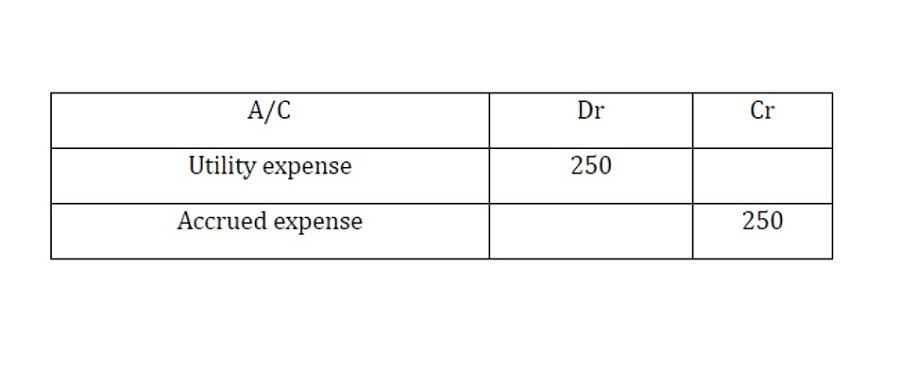How Covid Changed the Accounting Profession for Good

Some accountants listed the government help (such as the PPP loans) as “extremely helpful”; others said that in the beginning, the rules concerning these programs were complicated and the processes were obscure. One notable example is the increased use of digital signatures, with 90% of accounting firms reporting an increase in digital signatures since the pandemic began. The pandemic has brought about significant changes to the accounting profession. Temporary changes have been made to accommodate remote work, with 75% of accounting firms adopting flexible work arrangements to keep staff safe. The pandemic forced many traditional firms with a “if it’s not broken, don’t fix it” mentality to adapt their practices to a different way of communicating with their clients. THE accounting industry has evolved steadily over the last decade, undergoing somewhat of a quiet revolution that was how has covid affected the accounting profession accelerated by the global pandemic.
- The disruption forced us all to work remotely, but I believe that the office is still important for client interaction, staff culture, and general staff productivity.
- If clients are forced to sell assets at a loss in order to make payments, they may later assert that the CPA is responsible for the losses due to unclear instructions.
- After hiring new employees, the immediate next steps of coaching and mentoring new staff also created challenges in a virtual environment.
- That’s according to a global survey of accounting professionals by SmartVault, a provider of cloud-based document management and client portals for accountants.
- The CARES Act is still in its infancy, and while guidance is being published regularly, much is unclear or untimely.
- Balancing business goals with employee experience can provide the best path forward as hybrid working becomes commonplace.
Optimizing Accounting Reserve Account Management Strategies
If you haven’t already, expect to have a robust discussion about impairments with auditors. If you are interested to hear how we are integrating technology in our practices, please ask one of our team. It offers accountants the opportunity to move away from mundane tasks and focus on providing more value-added services.
Meeting expectations is where our Audit services begin

Consider including risk allocation provisions such as hold-harmless, indemnification, or loss-limitation provisions to help further mitigate the firm’s risk. While important to consider for all services, these provisions take on more relevance due to the fluidity of the current environment. For the most part, new services related to stimulus activities will be some form of consulting service. Clearly outline that the client is responsible for making all decisions, whether it’s addressing the advice and recommendations provided by the CPA or selecting the tax return position to be taken on an amended return.

Advisory
This automation has quickly enhanced efficiency and accuracy while removing some of the need for human input, allowing accounting employees to focus on other tasks. Chris is a content manager for Canopy, joining the team with a combined eight years of experience as a copywriter, editor-in-chief, and content marketer. He’s a skilled wordsmith and strategic thinker who shapes brand identity through compelling content and fosters a collaborative and innovative environment. With a passion for storytelling and a dedication to excellence, he is a driving force behind any company’s success in content marketing. Adapting to the new digital landscape is crucial for accountants to thrive in unprecedented challenges.
- Across Canada, and particularly over the past few years, firms are embracing new technologies and fine-tuning how to best serve their clients.
- The accounting profession is facing a serious crisis, and it is time to make dramatic changes.
- Refer to the AICPA’s guidance on CPA Comfort Letter to Lenders and Third Party Verifications for more information on requests from lenders and a CPA’s suggested response (or lack thereof).
- In her role at the International Federation of Accountants (IFAC), Kristy Illuzzi, CPA, CGMA, works with small and midsize entities, including CPA firms.
- To learn more about how Checkpoint Edge can help you regain control of your accounting and financial statements, watch our latest webcast Financial Reporting in the Times of COVID-19.
This article will look at how technology has changed the accounting profession for the better and how businesses can use this tech in their company. The economic disruptions caused by the pandemic have made cash flow management and forecasting more challenging. Accountants have had to closely monitor cash flows, assess liquidity risks, and develop robust forecasting models to help organizations navigate through the uncertainties. The ability to accurately forecast cash flows has become crucial for making informed financial decisions and ensuring the financial stability of businesses. One of the most intimidating tasks facing companies’ financial representatives today is the urgent need to provide extensive disclosures detailing the pandemic’s impact and how that risk is being managed. Several accounting matters—including going concern considerations, impairments, fair value measurements, debt, and revenue recognition—must be navigated through a new lens given the impact of COVID-19.

Cloud migration, a redefined toolkit and increased integration—the good, the bad, the ugly, and the future. From providing the necessary equipment to adjusting VPN capacity, their technology team worked to meet this challenge as quickly as possible. The firm had to create and implement processes and procedures which would allow them to take their https://www.bookstime.com/unearned-revenue primarily paper-based operations completely online. The pandemic has served as a reminder of the importance of robust risk management practices.


The impact of technology and advisory opportunities on today’s practices mean that the base knowledge of tools and strategies available to the average accountant have been raised to levels that match consumer demand. In the digital era, obtaining a degree in accounting or enhancing your current qualifications no longer requires physical attendance at classes. Many reputable online schools now offer programs catering to aspiring accountants and established professionals seeking education. The larger issue is the fact that a lack of skills relating to technology advancements is hindering tech what are retained earnings adoption, which in turn, is stifling an accountant’s potential for growth. But is bookkeeping a dying profession before jumping into why you shouldn’t worry, take a look at why the WEF considers accounting a dying profession. In their most recent Future of Jobs 2020 Report, the World Economic Forum just labeled accountants the no. 3 most at-risk job.
